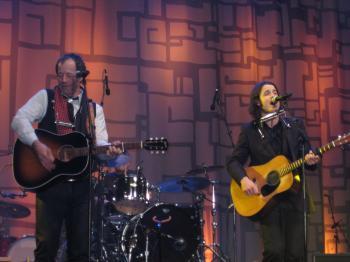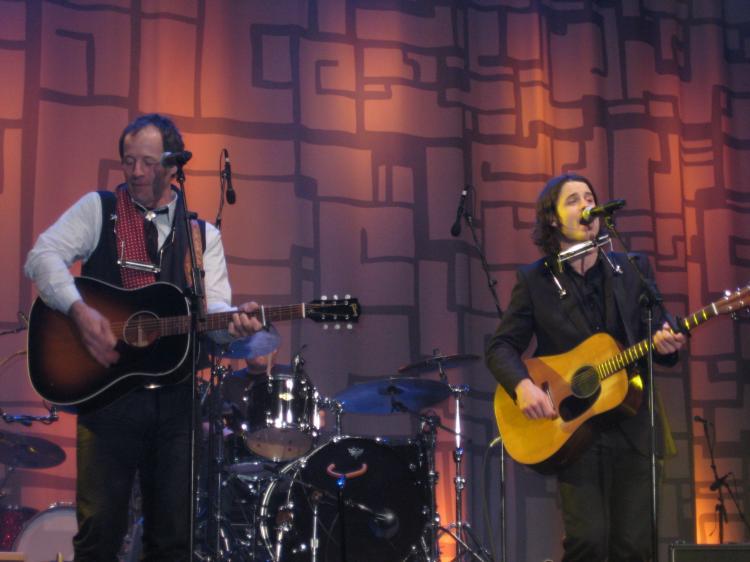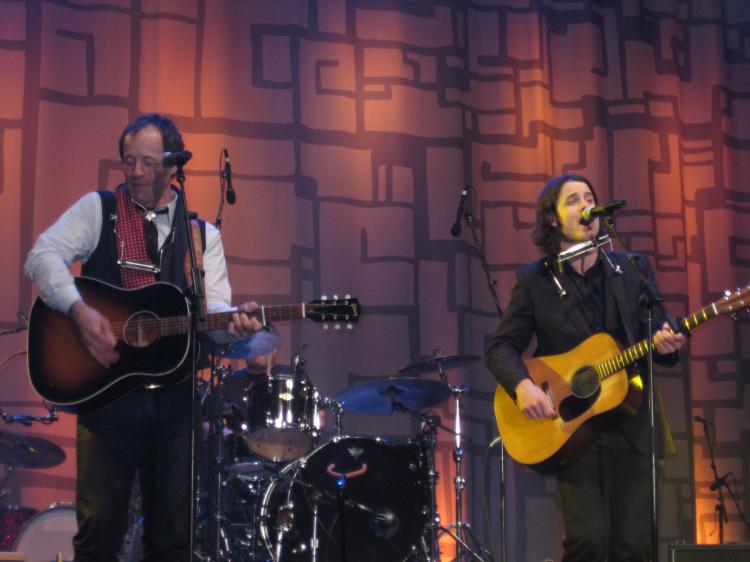VANCOUVER, Canada—Canadian music and arts have been given the centre podium in Vancouver’s Olympic cultural celebrations and the country has gathered its best homegrown talent for the world to see.
With a wide range of free venues throughout the city dedicated to bringing Canadian music and art to the Olympic masses, the Canadian arts scene stands to get an Olympic-sized boost and worldwide exposure.
So how do you accurately portray the culture of a multi ethnic country founded by immigrants that has only been in existence since 1867? You embrace it all and showcase Canadian ethnic diversity. You also give special prominence to the Aboriginal peoples who were the original inhabitants of the land and acknowledge the fact that the Olympic venues are all standing on land originally populated by First Nations peoples.
In many ways a country is defined by its artistic culture and Vancouver organizers put special care into seeing that the Olympic cultural festivities offer a good representation of what the vast land of Canada, with its emphasis on multiculturalism, has to offer.
Cultural Olympiad
The Cultural Olympiad—one of the central features of the Olympics in ancient Greece—is the artistic limb of the 2010 Games.
The Cultural Olympiad was reborn in 1894 as one of the main pillars of the Olympics to promote peace and understanding between nations. From 1912, artists were actually granted medals for their artistic contributions, with each vying for creative gold alongside the athletes. Since the 1950s the Cultural Olympiad has taken on a more celebratory festival format and the medals have been left for the athletes.
Culture is one of the three pillars of the Olympics deemed by the International Olympic Committee and Vancouver has gone above and beyond by turning the Cultural Olympiad into a two-year festival that reaches its zenith during the Games and ends with the World Tea Party in March.
Canadian and international arts and popular culture are featured in a diverse variety of music, dance, theatre, visual arts, film, outdoor spectaculars, and digital media experiences.
Aboriginal involvement
Canada’s aboriginal communities have been given special prominence in the Olympics and Vancouver has incorporated a plentiful amount of Aboriginal culture into every facet of the Games. From the Inukshuk Olympic logo, which represents a traditional stone sculpture used by Canada’s Inuit people, to the prominent display of aboriginal art throughout the city and the venues, First Nations culture is front and centre in the city’s Cultural Olympiad.
The Games are held within the traditional territories of the Lil'wat, Musqueam, Squamish, and Tsleil-Waututh who together make up the Four Host First Nations Society, the governing body of aboriginal involvement in the Olympics. This is the first time in history that Indigenous peoples have been recognized by the International Olympic Committee as official partners in the hosting of an Olympics.
More than 160 aboriginal performers from over 50 First Nations, Inuit, and Metis communities will provide around 375 performances during the Games. From Coast Salish carving demonstrations to the modern blues rock of Bitterly Divine, the contemporary and the traditional are woven together.
The 2010 Aboriginal Pavilion features authentic aboriginal art, music, cuisine and entertainment from across Canada as well as Vancouver 2010 authentic aboriginal merchandise. Each day the pavilion has been hosting traditional and contemporary performances from the Four Host Nations as well as Aboriginal groups from across Canada.
One of the cultural legacies of the Games is the aboriginal art commissioned for the venues. More than 90 First Nations, Inuit and Métis artists representing every province and territory in Canada participated in the program, which included the creation of over 140 works of art.
The music
Boasting only a handful of performers that have had international exposure and success, most of the music venues are filled with the best of relatively unknown Canadian talent. If the Olympic performers are an indication of what the Canadian music scene is really all about, then an eclectic mix of blues, roots and jazz are the cornerstones of the Canadian music identity.
Live City Vancouver has two stages in the downtown core that feature a nightly variety of artists ranging from the world beat of Guinean-Canadian Alpha Yaya Diallo to the alt country swagger of Dustin Bentall and the Canadian hip hop of Kardinal Offishal.
Bentall, a North Vancouver native and son of the legendary Barney Bentall, took the stage at Live City Yaletown with a crack band and a little help from his old man, proving to be a chip off the old block as well as a new force to be reckoned with in the alt country scene. He is just one of the many artists to show the eclectic side of Canada. Colin James, Great Big Sea, and Sam Roberts Band are intertwined with cool Jazz from the likes of Zapato Negro.
The Olympics is the perfect event to initiate a thorough search of what is in a country’s own back yard and the characteristics that define its music and arts scene. It provides an opportunity to not only showcase Canada’s best talent to the world but to take stock of where we are as an artistic and culturally evolving nation.








